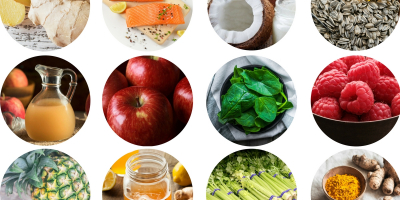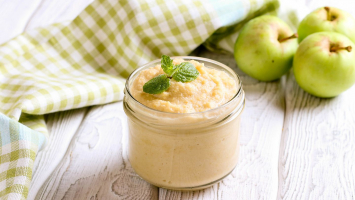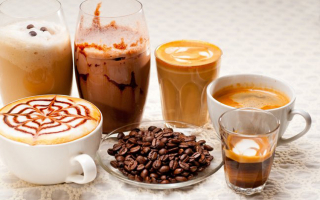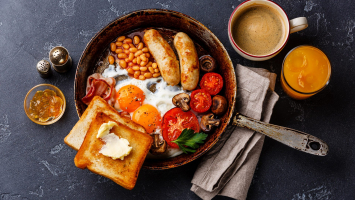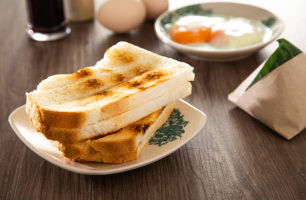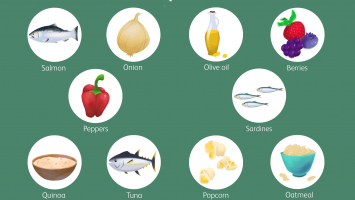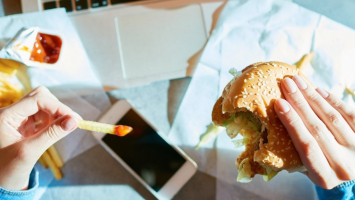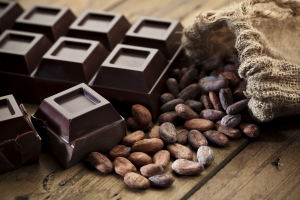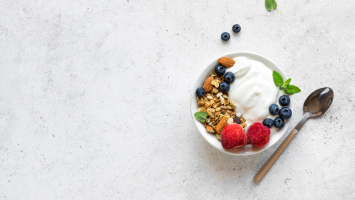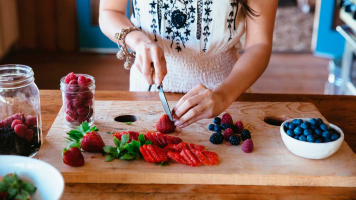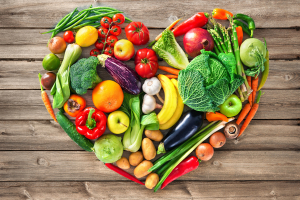Top 9 Best Foods and Drinks to Have Before Bed
Getting enough sleep is critical for your overall health. It may lower your risk of acquiring some chronic illnesses, maintain the function of your brain, and ... read more...strengthen your immune system. It is typically suggested that you obtain 7 to 9 hours of unbroken sleep per night, yet many people struggle to get enough. There are numerous techniques for supporting excellent sleep, including dietary adjustments, as some foods and beverages have sleep-promoting qualities. Here are the finest meals and drinks to consume before bed to improve your sleep quality.
-
Antioxidants may protect your cells from harmful inflammation that can lead to these chronic diseases. It’s been claimed that almonds may help boost sleep quality as well. This is because almonds, along with several other types of nuts, are a source of the hormone melatonin. Melatonin regulates your internal clock and signals your body to prepare for sleep Almonds are also an excellent source of magnesium, providing 19% of your daily needs in only 1 ounce.
Consuming adequate amounts of magnesium may help improve sleep quality, especially for those who have insomnia. Magnesium’s role in promoting sleep is thought to be related to its ability to reduce inflammation. Additionally, it may help reduce levels of the stress hormone cortisol, which is known to interrupt sleep. Antioxidants may shield your cells from the damaging inflammation that can contribute to certain chronic diseases. Almonds have also been linked to improved sleep quality. This is because almonds, like numerous other types of nuts, contain the hormone melatonin.
Melatonin regulates your body's internal clock and signals it to prepare for sleep. Almonds are also a good source of magnesium, with 1 ounce providing 19% of your daily needs. Consuming enough magnesium may assist improve sleep quality, especially for people who suffer from insomnia. The capacity of magnesium to reduce inflammation is suggested to play a part in its involvement in promoting sleep. It may also help lower levels of the stress hormone cortisol, which is known to disrupt sleep.
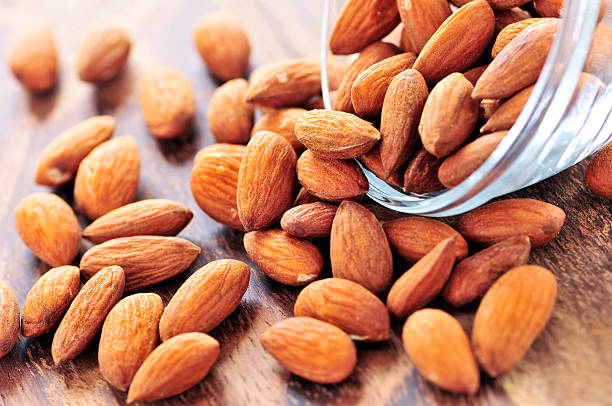
Almonds 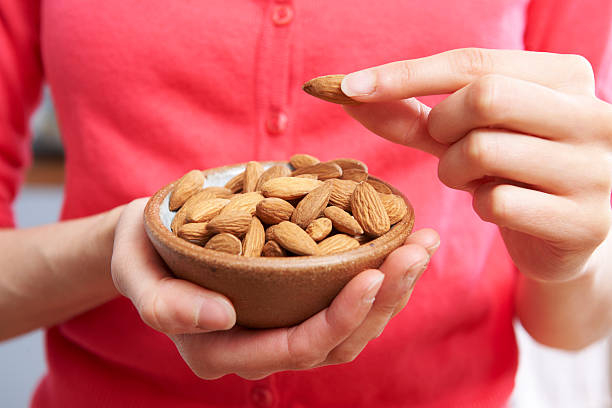
Almonds -
Turkey is both tasty and healthful. It's high in protein, with roasted turkey delivering over 8 grams per ounce (28 grams). Protein is essential for maintaining muscle mass and controlling appetite. Turkey is also a good source of a few vitamins and minerals, such as riboflavin and phosphorus. It's high in selenium, with a 3-ounce serving delivering 56% of the daily value (DV). Turkey contains a few characteristics that explain why some individuals feel weary after eating it or believe it promotes sleepiness. It contains the amino acid tryptophan, which boosts the generation of melatonin.
Turkey's protein content may possibly play a role in its potential to produce sleepiness. There is evidence that eating moderate amounts of protein before bedtime is connected with improved sleep quality, including fewer waking up during the night. More research is needed to confirm turkey's possible impact on sleep improvement.

Turkey 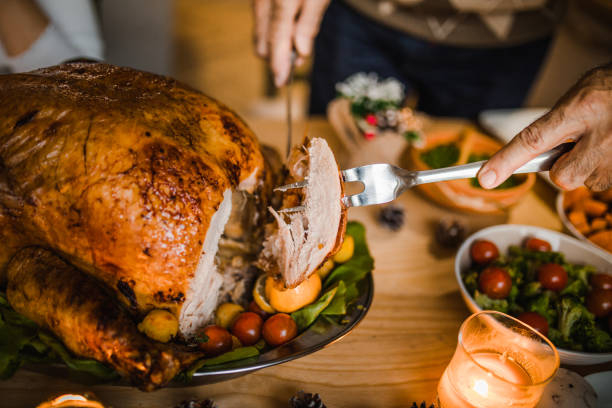
Turkey -
Chamomile tea is a popular herbal beverage with a number of health advantages. It's famous for its flavones. Flavones are a type of antioxidant that reduces inflammation, which is linked to chronic diseases like cancer and heart disease. Drinking chamomile tea may also enhance your immune system, alleviate anxiety and sadness, and improve skin health. Furthermore, chamomile tea contains some special qualities that may help with sleep quality.
Chamomile tea, in particular, contains apigenin. This antioxidant binds to specific brain receptors that may promote drowsiness and alleviate insomnia. In a 2011 research of 34 people, individuals who took 270 mg of chamomile extract twice daily for 28 days fell asleep 15 minutes sooner and had less overnight wakening than those who did not take the extract. Another study discovered that women who drank chamomile tea for two weeks had better sleep quality than non-tea drinkers. Those who drank chamomile tea also reported reduced symptoms of depression, which is frequently related to sleep issues. If you want to increase the quality of your sleep, try drinking chamomile tea before going to bed.
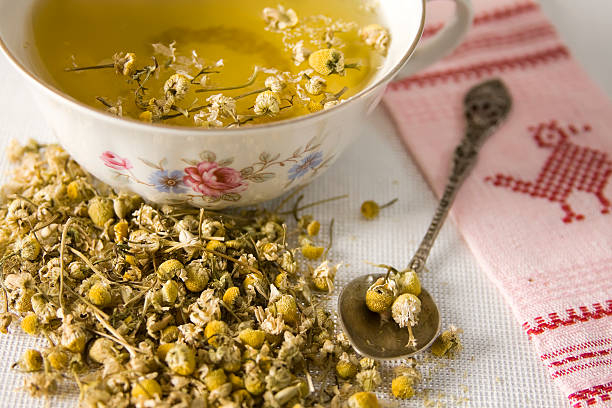
Chamomile tea 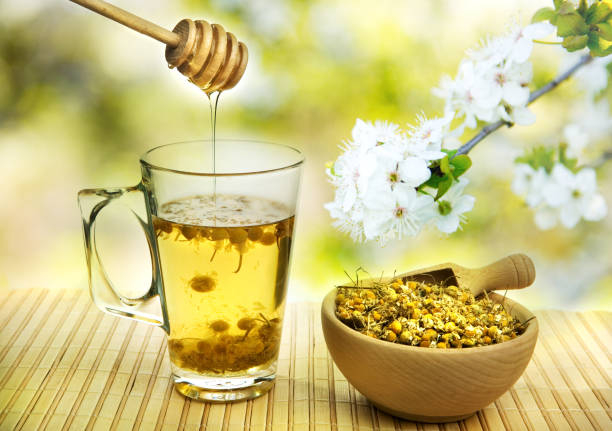
Chamomile tea -
Kiwis are a low-calorie, high-nutritional-value fruit. One fruit contains only 42 calories and a lot of nutrients, including 71% of the daily value for vitamin C. It supplies men and women with 23% and 31% of their daily vitamin K requirements, respectively. It has a good amount of folate and potassium, as well as a few trace elements. In addition, eating kiwis may improve your digestive health, reduce inflammation, and lower your cholesterol. These effects are attributable to the high levels of fiber and carotenoid antioxidants found in them. Kiwis may be one of the healthiest foods to eat before bed, according to studies on their potential to improve sleep quality.
In 4-week research, 24 people ate two kiwifruits one hour before bedtime every night. Participants fell asleep 42% faster than when they didn't eat anything before a night at the end of the trial. Furthermore, their ability to sleep through the night without waking up improved by 5%, while total sleep time increased by 13%. Kiwis' sleep-inducing properties are sometimes ascribed to serotonin. Serotonin is a brain molecule that aids in the regulation of your sleep cycle. It's also been hypothesized that anti-inflammatory antioxidants found in kiwis, such as vitamin C and carotenoids, may play a role in their sleep-promoting properties. More scientific research is required to assess the effects of kiwis on sleep.
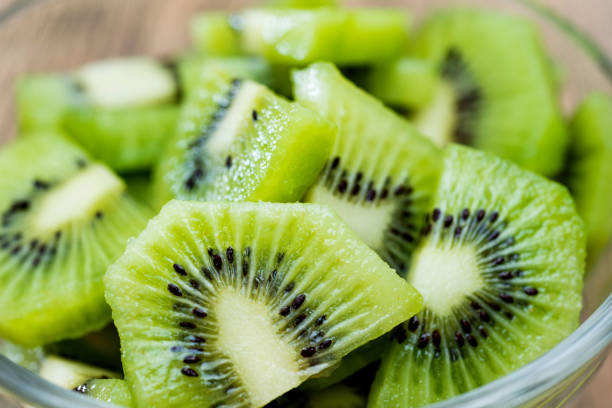
Kiwi 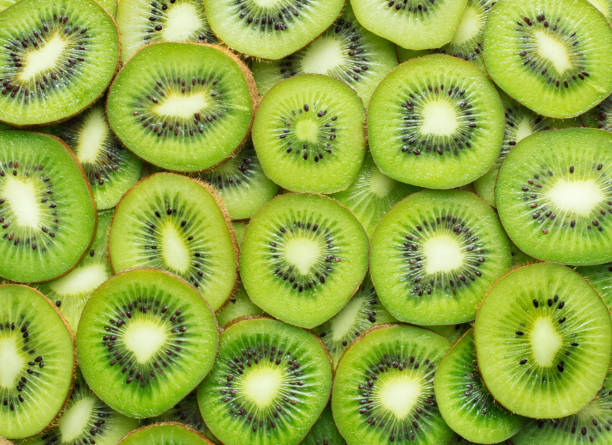
Kiwi -
Tart cherry juice provides numerous health advantages. For starters, it contains trace levels of a few essential elements, such as magnesium and phosphorus. It's also a good source of potassium. An 8-ounce (240-milliliter) portion contains 17% of a woman's daily potassium need and 13% of a man's daily potassium requirement. It also contains a lot of antioxidants, like anthocyanins and flavonols. Tart cherry juice is also known to increase tiredness, and its role in alleviating insomnia has been researched. For these reasons, consuming sour cherry juice before bedtime may help you sleep better.
The high levels of melatonin in sour cherry juice contribute to its sleep-promoting properties. Adults with insomnia drank 8 ounces (240 ml) of tart cherry juice twice a day for two weeks in a small trial. When compared to when they did not drink the juice, they slept 84 minutes longer and reported higher sleep quality. Although these findings are encouraging, more research is needed to validate tart cherry juice's role in enhancing sleep and preventing insomnia. Nonetheless, if you have trouble falling or staying asleep at night, consider sipping some acidic cherry juice before bed.
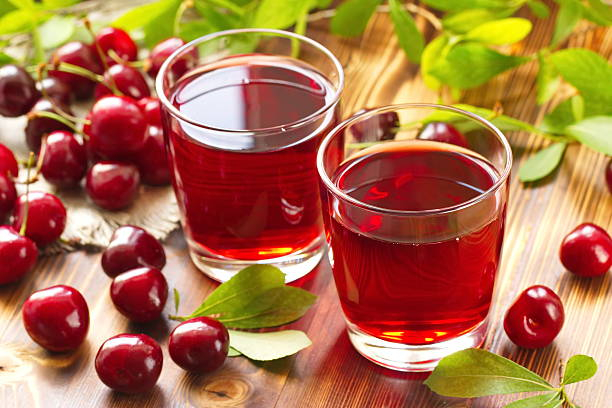
Tart cherry juice 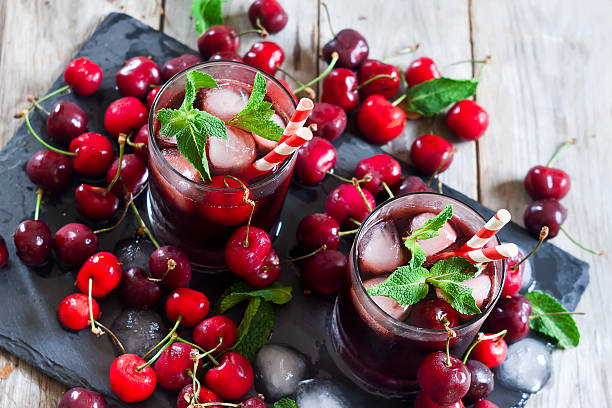
Tart cherry juice -
Fatty fish like salmon, tuna, trout, and mackerel are extremely nutritious. Their high levels of vitamin D are what distinguish them. A 3-ounce (85-gram) portion of sockeye salmon, for example, contains 570 international units (IU) of vitamin D. That's 71% of your daily value. A comparable portion of farmed rainbow trout contains 81% of your daily value. Fatty fish is also high in omega-3 fatty acids, notably eicosapentaenoic acid (EPA) and docosahexaenoic acid (DHA) (DHA). EPA and DPA have been shown to reduce inflammation. Furthermore, omega-3 fatty acids may help to prevent heart disease and improve brain health.
The combination of omega-3 fatty acids and vitamin D found in fatty fish has the potential to improve sleep quality because both have been demonstrated to promote serotonin synthesis. Males who ate 10.5 ounces (300 grams) of Atlantic salmon three times a week for six months fell asleep around 10 minutes faster than men who ate chicken, beef, or pig, according to one study. This effect was considered to be caused by vitamin D. The fish group had greater vitamin D levels, which was connected to a considerable improvement in sleep quality. Eating a couple of ounces of fatty fish before bedtime may help you sleep faster and deeper.
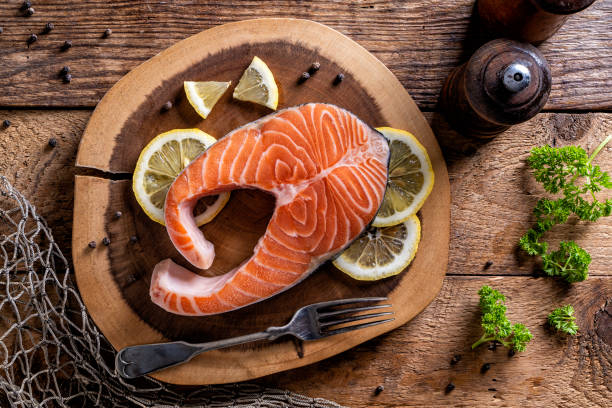
Fatty fish 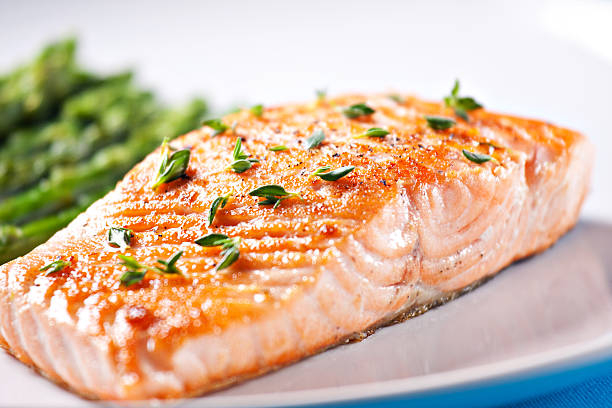
Fatty fish -
Walnuts are a well-known type of tree nut. They're high in nutrients, with over 19 vitamins and minerals and 1.9 grams of fiber in a 1-ounce (28-gram) serving. Walnuts have high levels of magnesium, phosphorus, manganese, and copper. Furthermore, walnuts are high in beneficial fats such as omega-3 fatty acids and linoleic acid. They also have 4.3 grams of protein per ounce, which may help with hunger control. Walnuts may also be beneficial to heart health. They've been researched for their capacity to lower high cholesterol levels, which are a significant risk factor for heart disease.
Furthermore, some researchers say that consuming walnuts enhances sleep quality since they are a good source of melatonin. Walnuts' fatty acid composition may also contribute to improved sleep. They contain alpha-linolenic acid (ALA), an omega-3 fatty acid that the body converts to DHA. DHA has been shown to boost serotonin synthesis. There isn't much data to back up the assertions that walnuts improve sleep. In fact, no research has been conducted that expressly addresses their impact on supporting sleep. Regardless, if you have trouble sleeping, eating some walnuts before bedtime may help. A handful of walnuts is an appropriate serving size.
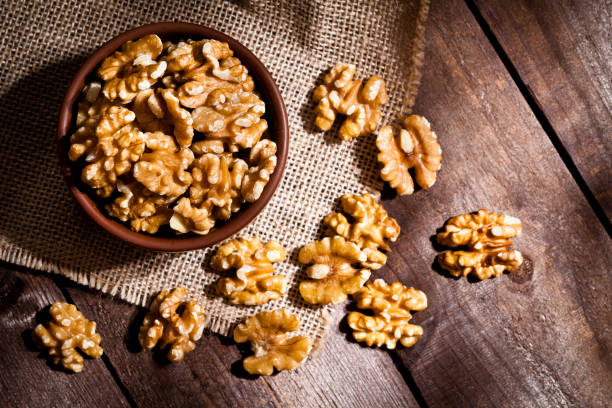
Walnuts 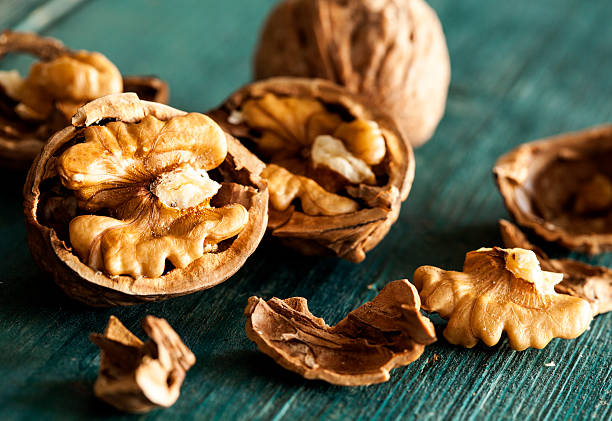
Walnuts -
Passionflower tea is another herbal tea that has traditionally been used to cure a variety of health issues. It is high in flavonoid antioxidants. Flavonoid antioxidants are well-known for their ability to reduce inflammation, promote immunological function, and lower the risk of heart disease. Furthermore, passionflower tea has been examined for its ability to alleviate anxiety. Apigenin, an antioxidant, may be responsible for passionflower's anxiety-reducing properties. Apigenin has a calming impact on the brain by attaching to specific receptors.
In addition, there is some evidence that passionflower promotes the creation of the brain chemical gamma-aminobutyric acid (GABA). GABA inhibits the action of other brain chemicals that cause stress, such as glutamate. Because of the relaxing characteristics of passionflower tea, it may be useful to consume it before going to bed. 41 adults participated in 7-day research, drinking a cup of passionflower tea before night. When they drank the tea, they rated their sleep quality substantially higher than when they did not drink the tea.
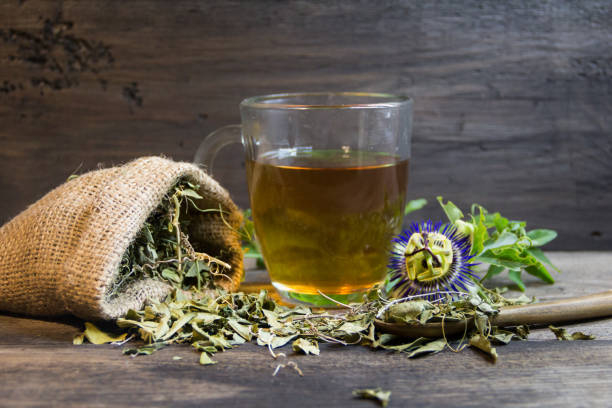
Passionflower tea 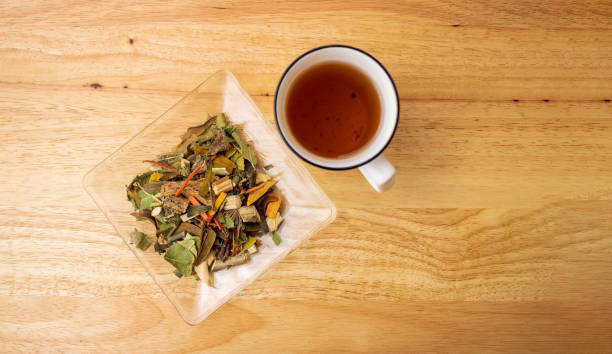
Passionflower tea -
White rice is a grain that is commonly consumed in many nations as a staple diet. The primary distinction between white and brown rice is that white rice has been stripped of its bran and germ. As a result, it contains less fiber, minerals, and antioxidants. Nonetheless, white rice contains a good number of vitamins and minerals. A 4-ounce (79-gram) portion of white rice has 19% of your daily folate requirements. It also meets 21% of men's daily thiamine requirements and 22% of women's daily thiamine requirements. A serving of 4-ounce (79-gram) long-grain white rice contains 13% of your daily value for manganese.
White rice has a high carbohydrate content, with 22 grams in a 4-ounce (79-gram) portion. Its high glycemic index is due to its carbohydrate load and lack of fiber (GI). The glycemic index measures how rapidly a food raises blood sugar. It has been proposed that consuming high GI meals, such as white rice, at least 1 hour before bedtime may assist enhance sleep quality. One study analyzed the sleeping habits of 1,848 persons based on how much rice, bread, or noodles they consumed. Higher rice consumption was linked to better sleep than bread or noodles, as well as longer sleep duration.
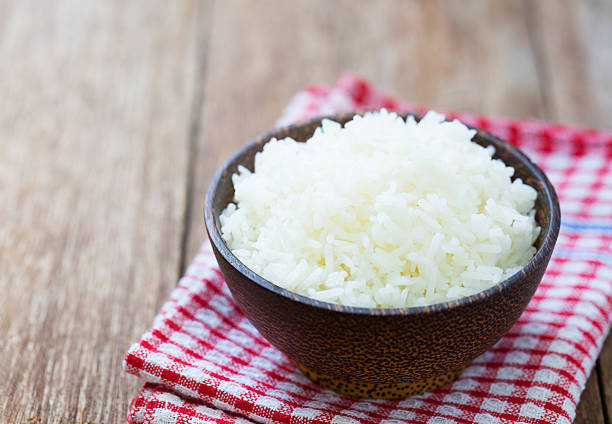
White rice 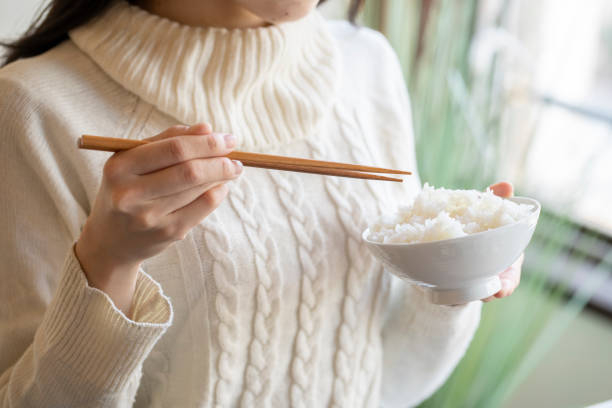
White rice
















